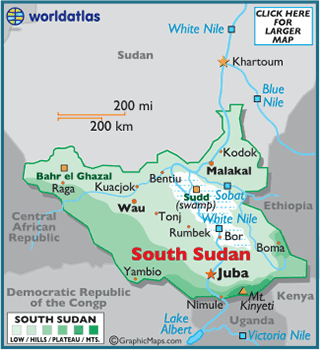 So, you don’t recall learning about South Sudan in high school history or geography? No surprise. The country was formed in 2011, less than a decade ago. In this post we take a break from our usual focus on Africa Sunrise Communities’ work. Let’s look at South Sudan as a country and how its history shapes our mission.
So, you don’t recall learning about South Sudan in high school history or geography? No surprise. The country was formed in 2011, less than a decade ago. In this post we take a break from our usual focus on Africa Sunrise Communities’ work. Let’s look at South Sudan as a country and how its history shapes our mission. 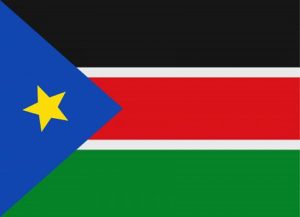 South Sudan was formed on July 9, 2011 after a referendum for independence from Sudan passed by an overwhelming majority. The country of Sudan had been formed from the Anglo-Egyptian colony of the same name and included the mostly Muslim and Arabic-speaking North along with the largely animist and Christian South, where many tribal peoples spoke their own languages and English. A long history of tension and outright fighting between peoples of the North and South finally led to this split and the founding of South Sudan.
South Sudan was formed on July 9, 2011 after a referendum for independence from Sudan passed by an overwhelming majority. The country of Sudan had been formed from the Anglo-Egyptian colony of the same name and included the mostly Muslim and Arabic-speaking North along with the largely animist and Christian South, where many tribal peoples spoke their own languages and English. A long history of tension and outright fighting between peoples of the North and South finally led to this split and the founding of South Sudan.  Many South Sudanese consider themselves part of East Africa, aligned with nations like Ethiopia, Kenya, and Uganda. As you can see from the map above, South Sudan is at a crossroads between East Africa and North Africa (Sudan, Egypt, Libya, etc.) and Central Africa (Central African Republic and Congo).The territory of South Sudan covers about 240,000 square miles, a little smaller than the state of Texas, but a population less than half of Texas. A July 2017 estimate puts the population of South Sudan at about 13,026,129 (July 2017 est.), a little larger than the population of the US state of Pennsylvania (https://www.cia.gov/library/publications/the-world-factbook/geos/print_od.html).
Many South Sudanese consider themselves part of East Africa, aligned with nations like Ethiopia, Kenya, and Uganda. As you can see from the map above, South Sudan is at a crossroads between East Africa and North Africa (Sudan, Egypt, Libya, etc.) and Central Africa (Central African Republic and Congo).The territory of South Sudan covers about 240,000 square miles, a little smaller than the state of Texas, but a population less than half of Texas. A July 2017 estimate puts the population of South Sudan at about 13,026,129 (July 2017 est.), a little larger than the population of the US state of Pennsylvania (https://www.cia.gov/library/publications/the-world-factbook/geos/print_od.html).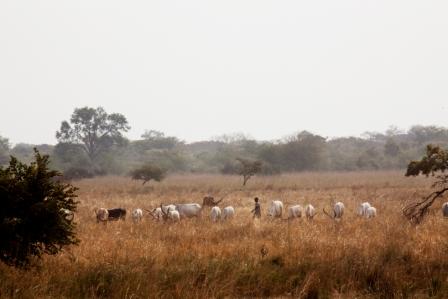 While most Americans think of “Sudan” as being a desert country, like Libya or Egypt, South Sudan is a tropical savanna with a distinct rainy season in summer and a dry season in winter. Temperatures range from 68 degrees to 98 degrees (Fahrenheit) and while most of the rains fall in the winter months, the annual rainfall for most of the country ranges from 31 to 40 inches. This leads to widespread seasonal flooding in the summer months that can cut off some villages from roads.
While most Americans think of “Sudan” as being a desert country, like Libya or Egypt, South Sudan is a tropical savanna with a distinct rainy season in summer and a dry season in winter. Temperatures range from 68 degrees to 98 degrees (Fahrenheit) and while most of the rains fall in the winter months, the annual rainfall for most of the country ranges from 31 to 40 inches. This leads to widespread seasonal flooding in the summer months that can cut off some villages from roads. 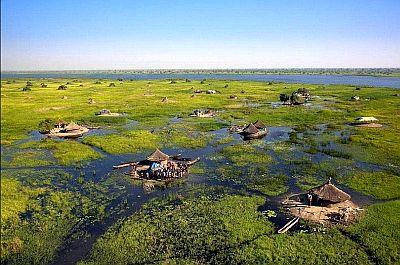 As the website www.climatestotravel.com explains, “…in some areas crossed by rivers there are wetlands, including the Sudd [see photo at right], the largest swamp in the world, situated in the north along the White Nile and its tributaries, which are lost in a myriad of lakes, canals, lagoons, covered with aquatic plants and inhabited by a large number of species of land animals and birds. The summer rains increase the surface of the flooded areas.”The official language of South Sudan is English. But Arabic is a frequently used as a 2nd semi-official language, since it is the official language of Sudan. But the people of South Sudan are a diverse collection of communities. There are over a dozen ethnic groups, sometimes referred to as “tribes,” each of which has its own language, traditions, and history. The Dinka are the largest ethnic group, making up as much as 30% of the population. The next largest group are the Nuer, who comprise about 15% of the total. There are least a dozen other ethnic groups, such as the Shiluk, the Azande, and even self-identified Arabs.
As the website www.climatestotravel.com explains, “…in some areas crossed by rivers there are wetlands, including the Sudd [see photo at right], the largest swamp in the world, situated in the north along the White Nile and its tributaries, which are lost in a myriad of lakes, canals, lagoons, covered with aquatic plants and inhabited by a large number of species of land animals and birds. The summer rains increase the surface of the flooded areas.”The official language of South Sudan is English. But Arabic is a frequently used as a 2nd semi-official language, since it is the official language of Sudan. But the people of South Sudan are a diverse collection of communities. There are over a dozen ethnic groups, sometimes referred to as “tribes,” each of which has its own language, traditions, and history. The Dinka are the largest ethnic group, making up as much as 30% of the population. The next largest group are the Nuer, who comprise about 15% of the total. There are least a dozen other ethnic groups, such as the Shiluk, the Azande, and even self-identified Arabs.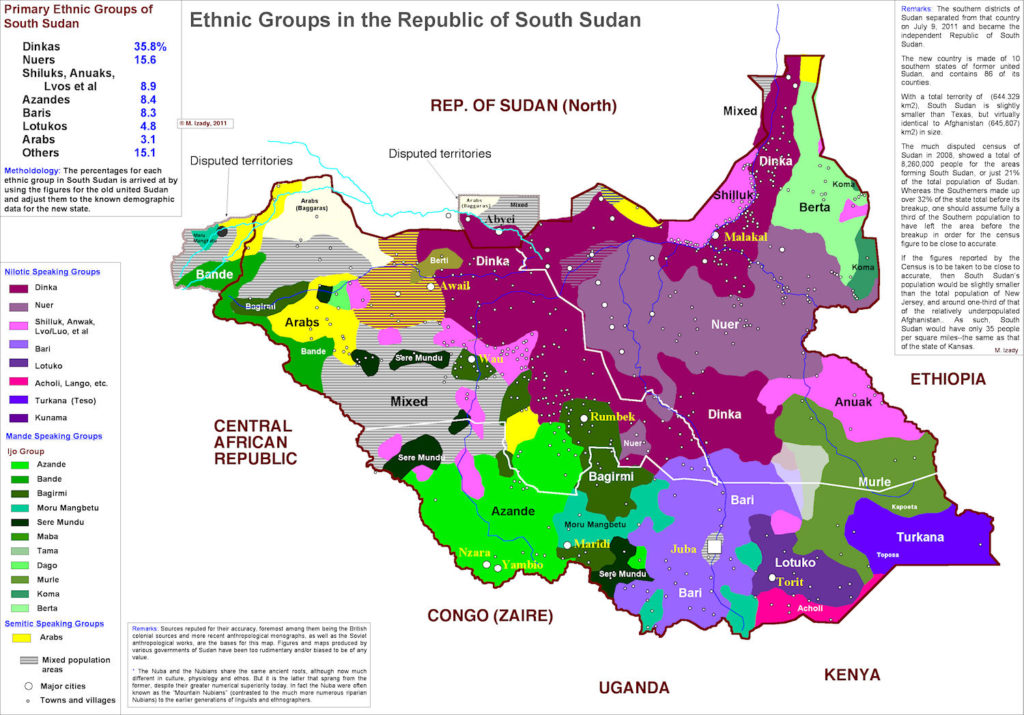 The diversity of ethnicity and local languages is overlayed with a mixture of religious practice, ranging from traditional “animist” beliefs, Christianity–which was introduced during the British colonial period–and Islam, principally among peoples living along the border with Sudan to the North where Islam is the dominant religion.
The diversity of ethnicity and local languages is overlayed with a mixture of religious practice, ranging from traditional “animist” beliefs, Christianity–which was introduced during the British colonial period–and Islam, principally among peoples living along the border with Sudan to the North where Islam is the dominant religion.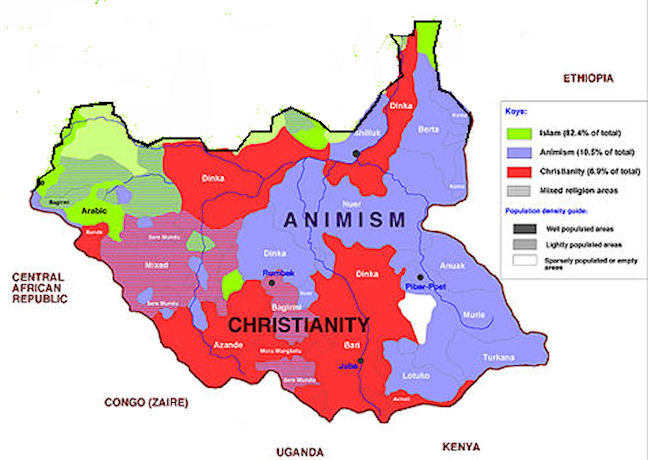 The important thing to understand is that South Sudan is a complex mosaic of peoples who all want peace and prosperity, but may not agree on how to get there. As with many post-colonial nations, South Sudan’s politics reflects, and sometimes exacerbates, tensions between different ethnic and religious groups. Their constitution created a presidential republic with two houses of legislature. However, the struggle to balance the interests of competing ethnic groups continues. One summary of the current situation, with the author’s own opinions, appears here. A longer article with more details appears here.Finally, it is important to understand that in addition to a colonial history, a history as part of the original Sudan (governed by Arabic-speaking Muslims from North Sudan), and a diverse ethnic and religious make-up, South Sudan is home to large deposits of oil. The competition to control access to oil fields contributed to the fighting and violence that led to South Sudan’s independence from the North. But it is also one of the factors leading to the new nation’s civil war and continuing inter-tribal fighting since independence. The people of South Sudan have lived with fighting and conflict of various types for over twenty years. Today millions of people are still displaced from their home villages or living in refugee camps in neighboring countries.
The important thing to understand is that South Sudan is a complex mosaic of peoples who all want peace and prosperity, but may not agree on how to get there. As with many post-colonial nations, South Sudan’s politics reflects, and sometimes exacerbates, tensions between different ethnic and religious groups. Their constitution created a presidential republic with two houses of legislature. However, the struggle to balance the interests of competing ethnic groups continues. One summary of the current situation, with the author’s own opinions, appears here. A longer article with more details appears here.Finally, it is important to understand that in addition to a colonial history, a history as part of the original Sudan (governed by Arabic-speaking Muslims from North Sudan), and a diverse ethnic and religious make-up, South Sudan is home to large deposits of oil. The competition to control access to oil fields contributed to the fighting and violence that led to South Sudan’s independence from the North. But it is also one of the factors leading to the new nation’s civil war and continuing inter-tribal fighting since independence. The people of South Sudan have lived with fighting and conflict of various types for over twenty years. Today millions of people are still displaced from their home villages or living in refugee camps in neighboring countries.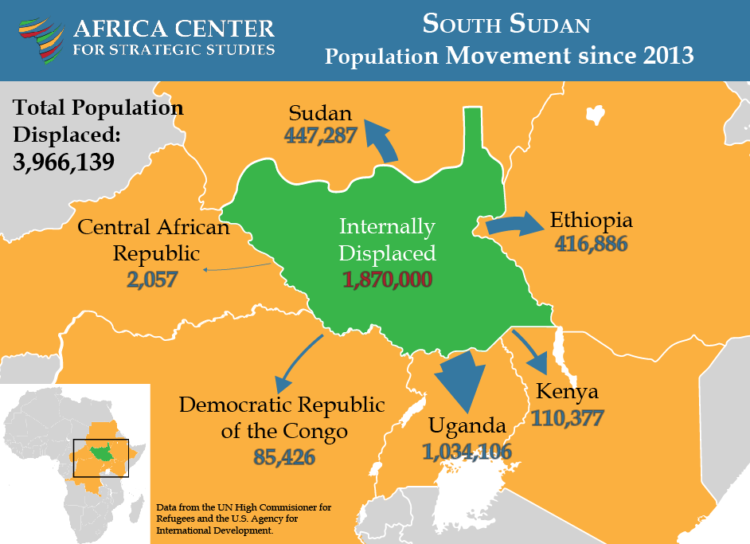 This brief summary should illustrate the wide range of challenges facing the people of South Sudan and those of us trying to assist in the country’s development. The rate of adult literacy is only about 30% (higher among men than women), employment outside of traditional cattle-herding and agriculture is very low, and investment in infrastructure such as roads and bridges is very limited. For more information on any of the topics covered in this article, we suggest you follow one of the source links for the maps and illustrations above.Africa Sunrise Communities is focusing its efforts at a very local level to give children in Bor town, Jonglei State, access to education. We support the efforts of other international agencies and local leaders to solve the larger problems of armed conflict, feeding and resettling refugees, and developing the economy of South Sudan. For more information about our work so far, see other blog posts on our website. To support us, visit our Get Involved page and share our news with your friends on Facebook and Twitter._________________________________________________________Follow us on Facebook and Twitter (@africa_sunrise).
This brief summary should illustrate the wide range of challenges facing the people of South Sudan and those of us trying to assist in the country’s development. The rate of adult literacy is only about 30% (higher among men than women), employment outside of traditional cattle-herding and agriculture is very low, and investment in infrastructure such as roads and bridges is very limited. For more information on any of the topics covered in this article, we suggest you follow one of the source links for the maps and illustrations above.Africa Sunrise Communities is focusing its efforts at a very local level to give children in Bor town, Jonglei State, access to education. We support the efforts of other international agencies and local leaders to solve the larger problems of armed conflict, feeding and resettling refugees, and developing the economy of South Sudan. For more information about our work so far, see other blog posts on our website. To support us, visit our Get Involved page and share our news with your friends on Facebook and Twitter._________________________________________________________Follow us on Facebook and Twitter (@africa_sunrise).
On September 19, 2017, Jacob was interviewed on Lexington Community Radio for the Bluegrass Refugee Radio Show. Jacob spoke about his childhood tragedies, his life as a refugee in America, and his identity as a Former Lost Boy. You can listen to the full show below:
Purpose for the TripThe purpose for this trip was to view firsthand the situation in Kiryandongo Refugee Camp in the Bweyale region of western Uganda, where some 53,000 South Sudanese refugees are living. These people have fled the warfare resulting from the incursion of Muslim militia fighters from Sudan in the north, but they are also running away from intertribal warfare within South Sudan itself. The y have found their way over the border into Uganda, where the United Nations and the Ugandan government have set up 13 camps like Kiryandongo, which is the largest one.When I began organizing Africa Sunrise Communities and trying to decide what my focus should be in working with my own people, I had thought that my mission was to return to Uganda to work within this refugee camp in setting up an elementary school, teaching the children, and, through them, begin to reach their parents with Christ’s message of peace and reconciliation. However, this trip showed me that there are already educational opportunities available for children in the camp. Conditions Within the Camp Several organizations are working within the camp. These include the United Nations High Commission for Refugees, International Rescue Committee, Windle Trust International, and several others.This Kiryandongo refugee settlement is on 27 square miles and contains a total of 18 “clusters.” Clusters are structured and designed to ease management of people and are basically smaller groups of people, families living together with an elected leader and supportive community structures.There is now much more tribal diversification in the camp than what I found when I was there last in 2014, though the Dinka and the Nuer tribes are still the largest groups.Living conditions are very primitive, with no running water or electricity. Homes are mostly mud huts. There are many water wells available, so water does not seem to be in short supply.There are schools, all of which charge at least a minimal tuition fee, even if they are called “free” schools. All children must purchase uniforms to attend school. School fees for children are typically about $12 tuition per child per month. One uniform costs around $9.School materials, such as chalkboards, textbooks, exercise books, etc., are procured by the United Nations. Because of all the variety of dialects spoken within the camp, the schools are taught in English. Most of the orphan children are out of school, as they have no one to pay their tuition and fees and to buy them uniforms.
Conditions Within the Camp Several organizations are working within the camp. These include the United Nations High Commission for Refugees, International Rescue Committee, Windle Trust International, and several others.This Kiryandongo refugee settlement is on 27 square miles and contains a total of 18 “clusters.” Clusters are structured and designed to ease management of people and are basically smaller groups of people, families living together with an elected leader and supportive community structures.There is now much more tribal diversification in the camp than what I found when I was there last in 2014, though the Dinka and the Nuer tribes are still the largest groups.Living conditions are very primitive, with no running water or electricity. Homes are mostly mud huts. There are many water wells available, so water does not seem to be in short supply.There are schools, all of which charge at least a minimal tuition fee, even if they are called “free” schools. All children must purchase uniforms to attend school. School fees for children are typically about $12 tuition per child per month. One uniform costs around $9.School materials, such as chalkboards, textbooks, exercise books, etc., are procured by the United Nations. Because of all the variety of dialects spoken within the camp, the schools are taught in English. Most of the orphan children are out of school, as they have no one to pay their tuition and fees and to buy them uniforms.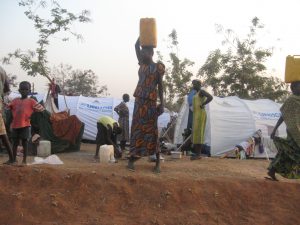 Orphans Will Become My New FocusI learned that the one group that is not being served well in the camp is that of young orphans. These boys and girls have lost their families to war and have fled alone to the refugee camp, much as I did at the age of 7 when war first broke out between Sudan and South Sudan. While they may be assigned in the camp to other families in which to be raised, the truth is that many of these children end up abandoned and having to fend for themselves. I am beginning to see that my focus should be on these children.From what I could find out, the official number of orphan children is 1,800 within the camp, but the chances are good that there are many more not included in this official count.These children are in need of a place of their own – a safe place to sleep, where they can be taken care of, with food available, with the means to go to school, and a place to come back to after school. Group homes seem to me to be the best way to care for the children. A group home would house 10-12 young children, ages about 4-10. Setting up such a group home will involve renting a dwelling within the camp and hiring a woman or a couple to be houseparents to see to the needs of the children.Where Do I Go From Here?It is necessary for me to set up a local non-government organization (NGO) with a different name, as my American-based Africa Sunrise Communities will not be recognized in Uganda. My local Ugandan organization’s name will be “Rising Hope Africa.” One of the reasons for my trip to Uganda was to begin the process of setting up this organization and registering it with the Ugandan authorities. The registration process is complicated by the fact that I am not a Ugandan citizen. I am in the process of filling out the registration forms and sending them back to Kampala, the capital of Uganda. Each step in this process calls for the payment of fees, such as the $150 registration fee, which I must send back with the papers.When Rising Hope Africa is registered in Uganda, I will have to set up a physical office in Kampala, which is about 3 hours away from the camp. This means renting office space there. The office will need to be staffed, at last minimally. This demonstrates to the Ugandan government that my intentions are to stay in Uganda and to work with government and other officials within the refugee camp. I will be partnering in every way possible with the Ugandan government and the United Nations and other NGOs working there.How You Can Help
Orphans Will Become My New FocusI learned that the one group that is not being served well in the camp is that of young orphans. These boys and girls have lost their families to war and have fled alone to the refugee camp, much as I did at the age of 7 when war first broke out between Sudan and South Sudan. While they may be assigned in the camp to other families in which to be raised, the truth is that many of these children end up abandoned and having to fend for themselves. I am beginning to see that my focus should be on these children.From what I could find out, the official number of orphan children is 1,800 within the camp, but the chances are good that there are many more not included in this official count.These children are in need of a place of their own – a safe place to sleep, where they can be taken care of, with food available, with the means to go to school, and a place to come back to after school. Group homes seem to me to be the best way to care for the children. A group home would house 10-12 young children, ages about 4-10. Setting up such a group home will involve renting a dwelling within the camp and hiring a woman or a couple to be houseparents to see to the needs of the children.Where Do I Go From Here?It is necessary for me to set up a local non-government organization (NGO) with a different name, as my American-based Africa Sunrise Communities will not be recognized in Uganda. My local Ugandan organization’s name will be “Rising Hope Africa.” One of the reasons for my trip to Uganda was to begin the process of setting up this organization and registering it with the Ugandan authorities. The registration process is complicated by the fact that I am not a Ugandan citizen. I am in the process of filling out the registration forms and sending them back to Kampala, the capital of Uganda. Each step in this process calls for the payment of fees, such as the $150 registration fee, which I must send back with the papers.When Rising Hope Africa is registered in Uganda, I will have to set up a physical office in Kampala, which is about 3 hours away from the camp. This means renting office space there. The office will need to be staffed, at last minimally. This demonstrates to the Ugandan government that my intentions are to stay in Uganda and to work with government and other officials within the refugee camp. I will be partnering in every way possible with the Ugandan government and the United Nations and other NGOs working there.How You Can Help 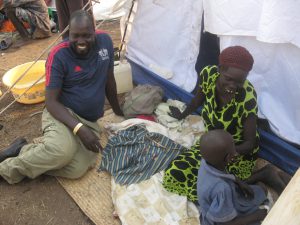 I am currently raising support to enable my family and myself to relocate to East Africa. As my family will not be living within the refugee camp themselves, I must set up a home for them, in Uganda or in Kenya, and send my children to school. I myself will also not be living in the refugee camp, but must find lodging nearby.It will cost $100,000 for the first year. This amount includes travel to Uganda, renting and setting up a home there, getting the children settled in school, finding a place for me to live, setting up an office in Kampala, renting and setting up an orphan group home in the refugee camp, hiring houseparents, in-country transportation costs, my salary, and ministry expenses. After that, my personal expenses will be $50,000 per year (including salary, living expenses, transportation, fees, etc.,) and the cost for running one group home will be $30,000 per year. Africa Sunrise Communities needs partners who will come alongside and commit to this ministry. We need you to pledge to give regularly (monthly, quarterly, or yearly) at a level that you can give to sustain this work. If one hundred supporters would pledge to give $100 a month, that would provide funds for me to go back to East Africa and to begin the ministry to which God has called me. Will you partner with me to help the orphan South Sudanese refugee children in Kiryandongo Camp? Will you support me in my mission to bring hope, education, and the Good News of Jesus Christ to my people? May God bless you as you consider partnering with me in this work.Jacob Guot, Executive Director and Founder
I am currently raising support to enable my family and myself to relocate to East Africa. As my family will not be living within the refugee camp themselves, I must set up a home for them, in Uganda or in Kenya, and send my children to school. I myself will also not be living in the refugee camp, but must find lodging nearby.It will cost $100,000 for the first year. This amount includes travel to Uganda, renting and setting up a home there, getting the children settled in school, finding a place for me to live, setting up an office in Kampala, renting and setting up an orphan group home in the refugee camp, hiring houseparents, in-country transportation costs, my salary, and ministry expenses. After that, my personal expenses will be $50,000 per year (including salary, living expenses, transportation, fees, etc.,) and the cost for running one group home will be $30,000 per year. Africa Sunrise Communities needs partners who will come alongside and commit to this ministry. We need you to pledge to give regularly (monthly, quarterly, or yearly) at a level that you can give to sustain this work. If one hundred supporters would pledge to give $100 a month, that would provide funds for me to go back to East Africa and to begin the ministry to which God has called me. Will you partner with me to help the orphan South Sudanese refugee children in Kiryandongo Camp? Will you support me in my mission to bring hope, education, and the Good News of Jesus Christ to my people? May God bless you as you consider partnering with me in this work.Jacob Guot, Executive Director and Founder
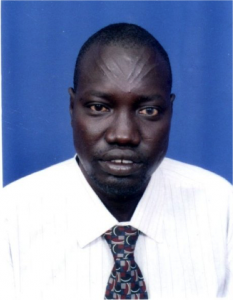 Personal Testimony, MY Experience As I walked across the campus during my time at Asbury Theological Seminary, several students kept asking me, “What happened to your head?” They were looking at my scarification. Some of my friends saw my scar as funny or they said, “I am so sorry for your accident on your head.” I said, “Dude, this is not an accident, it is my cultural norm.”The Problem– devaluing a person through devaluing their culture is dehumanizingThey asked me again: “Would you please tell us what happened and why?” I would tell them that it is my pleasure to talk about this; that it blessed me to discuss it. I would say that far from being an accident, this is a cultural norm among the Dinka tribes of South Sudan.The Need – Understanding through Conversation: Meeting people within their own cultureJesus meets people within their own culture, He does not devalue people because of their culture, rather He illuminates their value through their culture. We all must be aware of cultural differences when we speak to others. It’s all to easy to force our cultural norms on others, and to question them for being different than our idea of normal. Why Did I Write a Book?
Personal Testimony, MY Experience As I walked across the campus during my time at Asbury Theological Seminary, several students kept asking me, “What happened to your head?” They were looking at my scarification. Some of my friends saw my scar as funny or they said, “I am so sorry for your accident on your head.” I said, “Dude, this is not an accident, it is my cultural norm.”The Problem– devaluing a person through devaluing their culture is dehumanizingThey asked me again: “Would you please tell us what happened and why?” I would tell them that it is my pleasure to talk about this; that it blessed me to discuss it. I would say that far from being an accident, this is a cultural norm among the Dinka tribes of South Sudan.The Need – Understanding through Conversation: Meeting people within their own cultureJesus meets people within their own culture, He does not devalue people because of their culture, rather He illuminates their value through their culture. We all must be aware of cultural differences when we speak to others. It’s all to easy to force our cultural norms on others, and to question them for being different than our idea of normal. Why Did I Write a Book?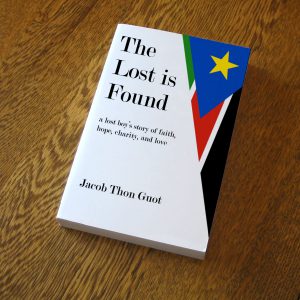 My classmates’ confusion about scarification and my culture caused me much anguish. My book is the solution. The Lost is Found: A “Lost Boy’s” Story of Faith, Hope, Charity, and Love tells my story of becoming a “Lost Boy,” when Muslim militias raided my village in what was then Sudan in 1987, when I was 7 years old. It details my years of running for my life, living in refugee camps, before being brought to the US in 2001. It describes a great deal about my life in Sudan and answers the questions about this lesser known culture. It tells a great deal about Dinka society, including marriage customs, the scarification rite of passage, and describes the rituals in detail. Great news! Jacob’s book, The Lost is Found, is now available in print and eBook format. All proceeds from his book go towards funding his mission to his own people, South Sudanese refugees, especially orphan children, in Uganda.EBooks are available from Amazon, as are print copies. However, if you make a gift of $50 to Africa Sunrise Communities, you will receive an autographed copy. Special thanks to www.EABooksPublishing.com. Thank you much for your generous support.Jacob Thon GuotExecutive Director and FounderAfrica Sunrise Communities
My classmates’ confusion about scarification and my culture caused me much anguish. My book is the solution. The Lost is Found: A “Lost Boy’s” Story of Faith, Hope, Charity, and Love tells my story of becoming a “Lost Boy,” when Muslim militias raided my village in what was then Sudan in 1987, when I was 7 years old. It details my years of running for my life, living in refugee camps, before being brought to the US in 2001. It describes a great deal about my life in Sudan and answers the questions about this lesser known culture. It tells a great deal about Dinka society, including marriage customs, the scarification rite of passage, and describes the rituals in detail. Great news! Jacob’s book, The Lost is Found, is now available in print and eBook format. All proceeds from his book go towards funding his mission to his own people, South Sudanese refugees, especially orphan children, in Uganda.EBooks are available from Amazon, as are print copies. However, if you make a gift of $50 to Africa Sunrise Communities, you will receive an autographed copy. Special thanks to www.EABooksPublishing.com. Thank you much for your generous support.Jacob Thon GuotExecutive Director and FounderAfrica Sunrise Communities
 My trip to Uganda is now underway. I am going to Bweyale Refugee Camp to make a general assessment of the situation there. I will meet with leaders of the refugees to talk about their needs and to assess the children’s educational needs from pre-school to 12th grade. I need to know which agencies are working in education in the camp, what they are doing, and how I can partner with them. I will meet with three groups of leaders: Sudanese refugees (Dinka, Nuer, and others); local Ugandan civil authorities in the camp; and officials from the United Nations High Commission on Refugees (UNHCR).I am going to Kampala to register as a local organization in Uganda. I will register as Living Hope Africa, which will function as the local arm of Africa Sunrise Communities. Fundraising in the U.S. will continue to flow through Africa Sunrise Communities. A local organization gives me freedom to do work in Uganda as a US-based one will not allow me to work there.In Nairobi I will be visiting the family of refugees whom I am supporting.I will go to Juba, South Sudan, to learn about four orphaned Dinka children from my village of Bor. Their parents were killed during a conflict in Bor; they were abducted by the Murle tribe but handed back to the UNHCR during negotiations. The UN contacted me to see if I could support these children, who are in a UN refugee camp in Juba: one 5-year old, two 6-year-olds, and one 7-year-old.I will be helped by Lual, who is my cousin. He lives in Juba and knows how help me negotiate the various officials and departments I must meet with.Please pray for me during this trip, that I might be able to meet with the right people and make the right contacts, and that the next steps for Africa Sunrise Communities/Living Hope Africa will become clear.My trip to Uganda will cost approximately $7,500. This will take care of airfare, food, lodging, and ground transportation, visas, organization registration fees, etc. If you can help me meet these financial obligations, please send a check to Africa Sunrise Communities, PO Box 82, Wilmore, KY 40390 or visit our website at www.africasunrise.org/get-involved/ to give towards my trip. All gifts are tax deductible. Thank you for your prayers and your financial support.Jacob GuotExecutive Director and Founder
My trip to Uganda is now underway. I am going to Bweyale Refugee Camp to make a general assessment of the situation there. I will meet with leaders of the refugees to talk about their needs and to assess the children’s educational needs from pre-school to 12th grade. I need to know which agencies are working in education in the camp, what they are doing, and how I can partner with them. I will meet with three groups of leaders: Sudanese refugees (Dinka, Nuer, and others); local Ugandan civil authorities in the camp; and officials from the United Nations High Commission on Refugees (UNHCR).I am going to Kampala to register as a local organization in Uganda. I will register as Living Hope Africa, which will function as the local arm of Africa Sunrise Communities. Fundraising in the U.S. will continue to flow through Africa Sunrise Communities. A local organization gives me freedom to do work in Uganda as a US-based one will not allow me to work there.In Nairobi I will be visiting the family of refugees whom I am supporting.I will go to Juba, South Sudan, to learn about four orphaned Dinka children from my village of Bor. Their parents were killed during a conflict in Bor; they were abducted by the Murle tribe but handed back to the UNHCR during negotiations. The UN contacted me to see if I could support these children, who are in a UN refugee camp in Juba: one 5-year old, two 6-year-olds, and one 7-year-old.I will be helped by Lual, who is my cousin. He lives in Juba and knows how help me negotiate the various officials and departments I must meet with.Please pray for me during this trip, that I might be able to meet with the right people and make the right contacts, and that the next steps for Africa Sunrise Communities/Living Hope Africa will become clear.My trip to Uganda will cost approximately $7,500. This will take care of airfare, food, lodging, and ground transportation, visas, organization registration fees, etc. If you can help me meet these financial obligations, please send a check to Africa Sunrise Communities, PO Box 82, Wilmore, KY 40390 or visit our website at www.africasunrise.org/get-involved/ to give towards my trip. All gifts are tax deductible. Thank you for your prayers and your financial support.Jacob GuotExecutive Director and Founder
Fighting continues in South Sudan, which over the past 3 years has seen more than 1 million of its people fleeing the country, according to the United Nations refugee agency. Over 185,000 have fled since July alone. This does not include the 1.6 million of its citizens who are displaced within the country, having fled their homes due to the violence. These figures mean that 20% of South Sudan’s population, or 1 in 5 of its citizens, are counted as refugees. Many of these refugees have fled the South Sudanese capital city of Juba, which is in the south of the country. Over one-third of these went south to Uganda, but other neighboring African countries have also taken in hundreds of thousands of these refugees.The fighting began in December of 2013, when President Salva Kiir and former Vice President Machar, the most powerful members of their respective Dinka and Nuer ethnic groups, struggled for control of their country. Machar was eventually forced out and replaced by another Vice President, but Machar does not recognize this change in leadership, and so the bloodshed continues, between and even within ethnic groups. A cease-fire instituted in August 2015 was soon broken.A Worsening SituationOne of the leaders in the refugee camps has written to Jacob to report that the camps at Kirangdongo and Yumba have been closed. Food shortages are severe; lack of leadership is hindering food rations from getting to those who need them most.
Many of these refugees have fled the South Sudanese capital city of Juba, which is in the south of the country. Over one-third of these went south to Uganda, but other neighboring African countries have also taken in hundreds of thousands of these refugees.The fighting began in December of 2013, when President Salva Kiir and former Vice President Machar, the most powerful members of their respective Dinka and Nuer ethnic groups, struggled for control of their country. Machar was eventually forced out and replaced by another Vice President, but Machar does not recognize this change in leadership, and so the bloodshed continues, between and even within ethnic groups. A cease-fire instituted in August 2015 was soon broken.A Worsening SituationOne of the leaders in the refugee camps has written to Jacob to report that the camps at Kirangdongo and Yumba have been closed. Food shortages are severe; lack of leadership is hindering food rations from getting to those who need them most.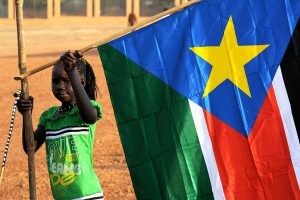 Many of those fleeing the violence are children who are alone. Their parents have been either killed or wounded and left behind as the children ran for their lives, or the families became separated in the confusion. This was the same situation in which Jacob Guot, founder of Africa Sunrise Communities, found himself when he became one of the “Lost Boys” of South Sudan, in earlier fighting. At the age of 7, he was forced to flee his village for his life and wander for thousands of miles over several years, before ending up in a Ugandan refugee camp. It was from there that he was brought to the United States, where he has since become an American citizen and obtained an education.Jacob is now working to raise funds for his organization to help with the plight of his fellow South Sudanese refugees in a particular refugee camp in Uganda. He is himself helping to support several children with funds to pay for education and school fees. His larger goal for Africa Sunrise Communities is for him to return to the Ugandan refugee camp and set up schools there for the children.
Many of those fleeing the violence are children who are alone. Their parents have been either killed or wounded and left behind as the children ran for their lives, or the families became separated in the confusion. This was the same situation in which Jacob Guot, founder of Africa Sunrise Communities, found himself when he became one of the “Lost Boys” of South Sudan, in earlier fighting. At the age of 7, he was forced to flee his village for his life and wander for thousands of miles over several years, before ending up in a Ugandan refugee camp. It was from there that he was brought to the United States, where he has since become an American citizen and obtained an education.Jacob is now working to raise funds for his organization to help with the plight of his fellow South Sudanese refugees in a particular refugee camp in Uganda. He is himself helping to support several children with funds to pay for education and school fees. His larger goal for Africa Sunrise Communities is for him to return to the Ugandan refugee camp and set up schools there for the children.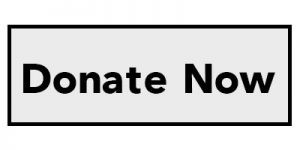 Please join in helping him to fulfill this goal. Your gifts are tax-deductible, as Africa Sunrise Communities is a recognized 501(c)(3) organization. Please visit the “Get Involved” section of this website to give.Blessings,President and Founder,Jacob Guot
Please join in helping him to fulfill this goal. Your gifts are tax-deductible, as Africa Sunrise Communities is a recognized 501(c)(3) organization. Please visit the “Get Involved” section of this website to give.Blessings,President and Founder,Jacob Guot
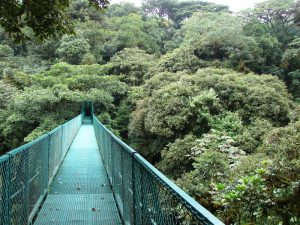 Several other Asbury Seminary students and I went to Costa Rica for a week-long workshop in June. My experience to Costa Rica was wonderful and I loved it. One of the strong points of Costa Rica is that it an extremely peaceful country. They even did away with their army in 1949 and all of their crime problems are handled by their police force. Everywhere you go the people are very welcoming as they greet you with smiles and seem happy to see you. It has become known as an unchanged tropical paradise due to its quiet history as a backwoods area, which protected it from early historical colonial turmoil and exploitation. Today’s Costa Rica cashes in on its purity and cleanliness. It has a famous jungle awning and they have constructed an “awning walk” tour that lets you travel through the jungle like a monkey. It’s also known for its zip-lining tours. There are world-famous surfing waves on the beaches on both sides of the country and they are known as one of the top three surfing destinations in the world. In addition to all of the exciting and adventurous things to do in Costa Rica, it is also a great place for those who just need a break in between adventures or who want a time of rest and relaxation. The rainy season can be the best time to go since it is not so crowded.With the peaceful and prosperous atmosphere of Costa Rica, it is no surprise that their pastors and the bishop are among the happiest in the church. The food in Costa Rica is also some of the best I have ever tasted. It’s main staple foods are rice and beans, known as gallo pinto. Much of the flavor of their food comes from their main sauce called lizano salsa. They put it on everything and the people love it. They even sell it at the airport. Costa Rica is also a huge producer of coffee, along with bananas and chocolate. Anyone who goes there should be sure to take a tour of Villa Vanilla farms to see how they make chocolate and vanilla, along with pepper, cinnamon and more.
Several other Asbury Seminary students and I went to Costa Rica for a week-long workshop in June. My experience to Costa Rica was wonderful and I loved it. One of the strong points of Costa Rica is that it an extremely peaceful country. They even did away with their army in 1949 and all of their crime problems are handled by their police force. Everywhere you go the people are very welcoming as they greet you with smiles and seem happy to see you. It has become known as an unchanged tropical paradise due to its quiet history as a backwoods area, which protected it from early historical colonial turmoil and exploitation. Today’s Costa Rica cashes in on its purity and cleanliness. It has a famous jungle awning and they have constructed an “awning walk” tour that lets you travel through the jungle like a monkey. It’s also known for its zip-lining tours. There are world-famous surfing waves on the beaches on both sides of the country and they are known as one of the top three surfing destinations in the world. In addition to all of the exciting and adventurous things to do in Costa Rica, it is also a great place for those who just need a break in between adventures or who want a time of rest and relaxation. The rainy season can be the best time to go since it is not so crowded.With the peaceful and prosperous atmosphere of Costa Rica, it is no surprise that their pastors and the bishop are among the happiest in the church. The food in Costa Rica is also some of the best I have ever tasted. It’s main staple foods are rice and beans, known as gallo pinto. Much of the flavor of their food comes from their main sauce called lizano salsa. They put it on everything and the people love it. They even sell it at the airport. Costa Rica is also a huge producer of coffee, along with bananas and chocolate. Anyone who goes there should be sure to take a tour of Villa Vanilla farms to see how they make chocolate and vanilla, along with pepper, cinnamon and more. 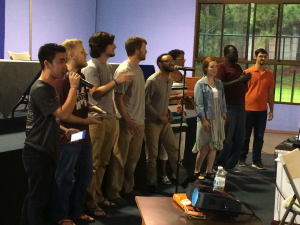 During my recent visit to Costa Rica for a one-week workshop concerning mission experiences, I met a friend who asked me a very interesting question that I had never thought about. Alex never gave me his full name, because of security reasons, he said. He said he would give me his heart forever, but not his name.Alex was interested in my life experience, because, as he said, “My life experiences have not been like yours, Jacob. All my experiences were from drugs, running after women, prostitutes, and so on. All that bad stuff has gone through my life. But, my amigo Jacob, you were facing such difficulties, even death, in your life experience. I am always interested in looking at the experiences of others so that I can learn from them and adjust my life. I am very excited to learn from you by knowing about your life.“First of all, I am very excited to meet you. Also, I am very thankful to God to bring you here to Alajuela Provenance in Costa Rica. I have never met an African or African-American in my life. God brought you here so I could meet you.“You remember what happened in I Kings 18:21 when Elijah said to the people, ‘How long halt ye between two opinions? If the LORD be God, follow him; but if Baal, then follow him.’ I know, Jacob, you will be like Elijah to your people by bringing them peace and justice. If they choose peace and restoration, then they will live. If they do not choose peace, then the refugees in East African countries will continue to be dead like they are already.”Alex asked me why black Africans don’t do mission outside of their world like white people do. Is it because they lack the resources? Or because they don’t like mission and don’t want to do mission in the world? He reminded me that only three of us in this workshop are black. When I asked him how many times he had been to this workshop, he replied he had been here four times. “This is a part of my knowledge and experience,” he said, “so I know what I am talking about.”When I asked him why he asked me such a searching question, he said, “Jacob, I know mission. I know more than you do. I am 67 years old, and have been a pastor leading a church for 27 years.”He told me about a man who had come to do mission work in Costa Rica with his family, but after a year he and his family left. They had five children and no support – no insurance, no money for school fees or for transportation, no money for rent. “I want to warn you, Jacob: is it about you or is it about God? I mean your family comes first, then the mission. Other people can pick up your mission but no one else can pick up and care for your family.”I can see good and evil in this advice. If God calls you into His service, you can’t say no. But evil can cause all sorts of problems for you and your family while following God’s call. It happened in my village when Muslims came and attacked my family just for being Christians.Alex told me that he had heard of many people leading in ministries and encouraging others
During my recent visit to Costa Rica for a one-week workshop concerning mission experiences, I met a friend who asked me a very interesting question that I had never thought about. Alex never gave me his full name, because of security reasons, he said. He said he would give me his heart forever, but not his name.Alex was interested in my life experience, because, as he said, “My life experiences have not been like yours, Jacob. All my experiences were from drugs, running after women, prostitutes, and so on. All that bad stuff has gone through my life. But, my amigo Jacob, you were facing such difficulties, even death, in your life experience. I am always interested in looking at the experiences of others so that I can learn from them and adjust my life. I am very excited to learn from you by knowing about your life.“First of all, I am very excited to meet you. Also, I am very thankful to God to bring you here to Alajuela Provenance in Costa Rica. I have never met an African or African-American in my life. God brought you here so I could meet you.“You remember what happened in I Kings 18:21 when Elijah said to the people, ‘How long halt ye between two opinions? If the LORD be God, follow him; but if Baal, then follow him.’ I know, Jacob, you will be like Elijah to your people by bringing them peace and justice. If they choose peace and restoration, then they will live. If they do not choose peace, then the refugees in East African countries will continue to be dead like they are already.”Alex asked me why black Africans don’t do mission outside of their world like white people do. Is it because they lack the resources? Or because they don’t like mission and don’t want to do mission in the world? He reminded me that only three of us in this workshop are black. When I asked him how many times he had been to this workshop, he replied he had been here four times. “This is a part of my knowledge and experience,” he said, “so I know what I am talking about.”When I asked him why he asked me such a searching question, he said, “Jacob, I know mission. I know more than you do. I am 67 years old, and have been a pastor leading a church for 27 years.”He told me about a man who had come to do mission work in Costa Rica with his family, but after a year he and his family left. They had five children and no support – no insurance, no money for school fees or for transportation, no money for rent. “I want to warn you, Jacob: is it about you or is it about God? I mean your family comes first, then the mission. Other people can pick up your mission but no one else can pick up and care for your family.”I can see good and evil in this advice. If God calls you into His service, you can’t say no. But evil can cause all sorts of problems for you and your family while following God’s call. It happened in my village when Muslims came and attacked my family just for being Christians.Alex told me that he had heard of many people leading in ministries and encouraging others 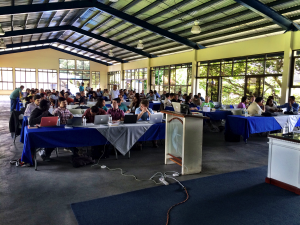 to support them and then later backing out because the ministry had not been what they expected. “I am not saying that this is what you will do, amigo,” Alex said. “I am praying for your mission. I have a lot of sympathy for what you have been through and I know that God is on His throne. At the same time I worry about your family. I know you have already paid a heavy price and that God has given you a mission, but be careful in your journey and with the people who come alongside to help you.”He encouraged me to keep close to the people who helped me since I came to the United States and those who have supported my education. “They love you and your family,” Alex said. “Listen to them and work with them, whether they continue to help you financially or not.”Alex continued, “They have invested in you and they have big hearts towards you. Be strong in your mission. Keep looking ahead, even if some people turn negative towards you. Know that God is your guide, your protector, your helper, and He will provide your resources. Don’t be fearful; if God has called you He will make a way for you.”“I advise you to put your family first and your mission second,” Alex said. “Don’t leave for Africa unless you have a clear idea of your support and when it will begin and end. I see you like a Martin Luther King or a Gandhi, bringing change to your people. Don’t become discouraged if some people do not get on board with your mission right away; sometimes people need to see something in action before they can bring themselves to support it. As Jesus said, look for the ‘house of peace’ in the community and work through that. Look for those who are ready to be helped.“I will be praying for you that God will bring people who will support you in your mission. Costa Rica is a very poor country and we don’t have much to support our ministry, but we can pray.”I appreciated talking with Alex because he was encouraging me while at the same time giving me advice from long experience in ministry. He reminded me to be grateful for those who have supported me in my education, my family and my mission. He also encouraged me to put God in charge of my mission. I realize that I need to look at my current reality to determine the direction I must go. I have been discussing his conversations with my wife. It was a blessing to me to meet this godly man, Alex. I will never forget him, because he is truly a man of God. If you want to see more of my time in Costa Rica, check out this videohttps://www.youtube.com/watch?v=-UpKmVu6XO0 Blessings,Jacob GuotASC Founder, and President
to support them and then later backing out because the ministry had not been what they expected. “I am not saying that this is what you will do, amigo,” Alex said. “I am praying for your mission. I have a lot of sympathy for what you have been through and I know that God is on His throne. At the same time I worry about your family. I know you have already paid a heavy price and that God has given you a mission, but be careful in your journey and with the people who come alongside to help you.”He encouraged me to keep close to the people who helped me since I came to the United States and those who have supported my education. “They love you and your family,” Alex said. “Listen to them and work with them, whether they continue to help you financially or not.”Alex continued, “They have invested in you and they have big hearts towards you. Be strong in your mission. Keep looking ahead, even if some people turn negative towards you. Know that God is your guide, your protector, your helper, and He will provide your resources. Don’t be fearful; if God has called you He will make a way for you.”“I advise you to put your family first and your mission second,” Alex said. “Don’t leave for Africa unless you have a clear idea of your support and when it will begin and end. I see you like a Martin Luther King or a Gandhi, bringing change to your people. Don’t become discouraged if some people do not get on board with your mission right away; sometimes people need to see something in action before they can bring themselves to support it. As Jesus said, look for the ‘house of peace’ in the community and work through that. Look for those who are ready to be helped.“I will be praying for you that God will bring people who will support you in your mission. Costa Rica is a very poor country and we don’t have much to support our ministry, but we can pray.”I appreciated talking with Alex because he was encouraging me while at the same time giving me advice from long experience in ministry. He reminded me to be grateful for those who have supported me in my education, my family and my mission. He also encouraged me to put God in charge of my mission. I realize that I need to look at my current reality to determine the direction I must go. I have been discussing his conversations with my wife. It was a blessing to me to meet this godly man, Alex. I will never forget him, because he is truly a man of God. If you want to see more of my time in Costa Rica, check out this videohttps://www.youtube.com/watch?v=-UpKmVu6XO0 Blessings,Jacob GuotASC Founder, and President
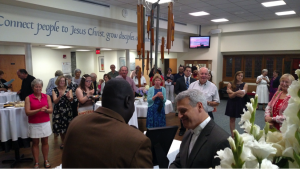 On the weekend of July 23-24, 2016, Jacob Guot visited the First United Methodist Church in Lancaster, Pennsylvania. He was accompanied by his whole family – his wife, Rebecca, his son Biar (7), his daughter Angieth (6), and his son Ayiei (nearly 3). Pastor Joe DiPaolo and the congregation of the church welcomed the Guot family warmly and gave them the opportunity to tell their story.Jacob was privileged to preach in the three Sunday morning services and the church held a reception for the family after the services. Jacob also visited some individual members of the congregation and was invited to meet with the Missions Committee of the church.A reception was held for the Guot family after the services and Jacob presented a recognition certificate to Pastor Joe DiPaolo for the church. Pictured is Rev. Jacob Guot with FUMC Pastor Joe DiPaolo with the congregation during the reception.Jacob told the story of his being forced to flee for his life as a 7-year-old boy. Through God’s hand of protection upon him, he grew up in a refugee camp and then was brought to the United States as one of South Sudan’s “lost boys” in 2001. He subsequently became an American citizen, learned English, and obtained an education. With his recent graduation from Asbury Theological Seminary in Wilmore, Kentucky, Jacob is now going to work to provide for his family.But his heart for South Sudan has led him to establish his non-profit organization, Africa Sunrise Communities, through which he is endeavoring to raise enough funds to take him and his family to Uganda to work inside a large South Sudanese refugee camp there. Jacob wants to give the children of the camp an education to give them hope for their own lives and to give his country of South Sudan a future.Will you help Jacob to bring hope and reconciliation to South Sudanese refugee children in Uganda? Please give generously to this effort. All gifts are tax-deductible. Yours truly,ASC Founder and President,Jacob Guot
On the weekend of July 23-24, 2016, Jacob Guot visited the First United Methodist Church in Lancaster, Pennsylvania. He was accompanied by his whole family – his wife, Rebecca, his son Biar (7), his daughter Angieth (6), and his son Ayiei (nearly 3). Pastor Joe DiPaolo and the congregation of the church welcomed the Guot family warmly and gave them the opportunity to tell their story.Jacob was privileged to preach in the three Sunday morning services and the church held a reception for the family after the services. Jacob also visited some individual members of the congregation and was invited to meet with the Missions Committee of the church.A reception was held for the Guot family after the services and Jacob presented a recognition certificate to Pastor Joe DiPaolo for the church. Pictured is Rev. Jacob Guot with FUMC Pastor Joe DiPaolo with the congregation during the reception.Jacob told the story of his being forced to flee for his life as a 7-year-old boy. Through God’s hand of protection upon him, he grew up in a refugee camp and then was brought to the United States as one of South Sudan’s “lost boys” in 2001. He subsequently became an American citizen, learned English, and obtained an education. With his recent graduation from Asbury Theological Seminary in Wilmore, Kentucky, Jacob is now going to work to provide for his family.But his heart for South Sudan has led him to establish his non-profit organization, Africa Sunrise Communities, through which he is endeavoring to raise enough funds to take him and his family to Uganda to work inside a large South Sudanese refugee camp there. Jacob wants to give the children of the camp an education to give them hope for their own lives and to give his country of South Sudan a future.Will you help Jacob to bring hope and reconciliation to South Sudanese refugee children in Uganda? Please give generously to this effort. All gifts are tax-deductible. Yours truly,ASC Founder and President,Jacob Guot
Nearly 100,000 South Sudanese fled from their homes into Uganda when political disputes within the ruling party in South Sudan led to the breakout of violence.Within the settlement camps in Uganda, South Sudanese refugees are using their agricultural skills to raise funds for their children’s school fees. Among these concerned parents is James Maker Ter. He works every day to clear weeds from his farm. During their holidays, his five children work alongside him to expand the land they are working. Although the United Nation refugee agency is supporting him, “I have to do more,” he says, “in order to support my family. I see this land has a lot of opportunities and I have decided to cultivate and I know doing this job will strengthen me.”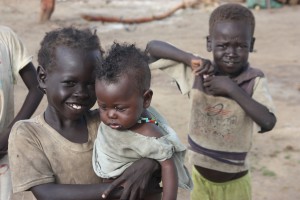 Last year he produced 50 bags of maize, each weighing around 25 pounds. He intends to produce more this year. Out of those 50 bags last year, he sold 20 of them to buy school uniforms for his children and to pay their medical bills.He is encouraging his fellow refugees in the displaced camps to take up their hoes and begin cultivation. Farming, he pointed out, does not require lots of capital. “When you produce more food, you will not have any problem. By engaging yourself into agriculture is likely to make you richer. If you sell clothes it may not work out in the hunger time, but if you have more grain stored and then your business can still boom,” said Maker.Another refugee, Mary Nyaber Koryom, who cares for 10 children in her house, says it has not been easy to provide for her children’s needs, like school uniforms and fees. “We have so many challenges to do this job. We lack tractors and buying pesticide become very expensive. We lack support to practice agriculture; we do this work for the sake of our own surviving in the camp,” she said.This is one of the two major thrusts of Africa Sunrise Communities – to help refugees in the Ugandan camps to take up gardening and agriculture, both for their own food source and for them to be able to afford schooling for their children. Your gift to our foundation can help to provide the means for these refugees to get started in providing for themselves and their families.(Information for this article was adapted from an article from the Sudan Tribune, March 6, 2016.)
Last year he produced 50 bags of maize, each weighing around 25 pounds. He intends to produce more this year. Out of those 50 bags last year, he sold 20 of them to buy school uniforms for his children and to pay their medical bills.He is encouraging his fellow refugees in the displaced camps to take up their hoes and begin cultivation. Farming, he pointed out, does not require lots of capital. “When you produce more food, you will not have any problem. By engaging yourself into agriculture is likely to make you richer. If you sell clothes it may not work out in the hunger time, but if you have more grain stored and then your business can still boom,” said Maker.Another refugee, Mary Nyaber Koryom, who cares for 10 children in her house, says it has not been easy to provide for her children’s needs, like school uniforms and fees. “We have so many challenges to do this job. We lack tractors and buying pesticide become very expensive. We lack support to practice agriculture; we do this work for the sake of our own surviving in the camp,” she said.This is one of the two major thrusts of Africa Sunrise Communities – to help refugees in the Ugandan camps to take up gardening and agriculture, both for their own food source and for them to be able to afford schooling for their children. Your gift to our foundation can help to provide the means for these refugees to get started in providing for themselves and their families.(Information for this article was adapted from an article from the Sudan Tribune, March 6, 2016.)